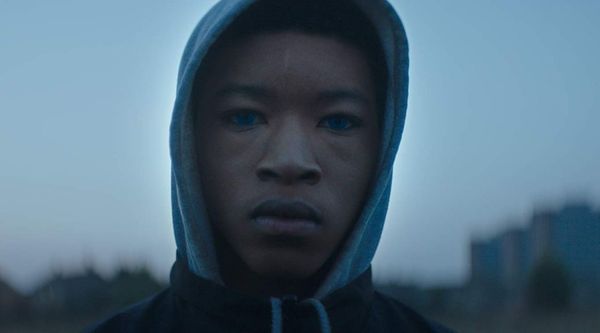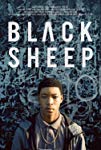Eye For Film >> Movies >> Black Sheep (2018) Film Review
Black Sheep
Reviewed by: Jennie Kermode

It was on the 27th of November 2000 that Damilola Taylor was murdered. The boy was just ten years old; nobody could pretend that it was about anything other than racist hate. Cornelius Walker remembers it as a turning point in his life. It was the incident that prompted his parents to give up on London and move out to a small commuter town in the hope of finding a better life.
Of course, as those who grow up in them know, small towns tend to be worse than big cities for anyone in a minority group. The move led to Cornelius experiencing racism so blatant and severe that he was at a loss as to how to respond. So he did what all too many people have done in that situation, but what few are prepared to talk about. He rejected his own blackness.

For people looking at it from the outside, the effect of growing up in a racist society on people of colour can be hard to understand. It's easy to appreciate the horror of being a victim of violence or to imagine the additional distress caused by knowing one faces an elevated risk of it happening again - especially when one is frequently reminded of that by taunts. It's harder to understand the corrosive effect this can have on an individual's sense of self. Cornelius was just like any other kid. He didn't want to be a victim. He wanted to fit in. He was willing to do everything in his power to achieve that, even to the point of modelling himself on his tormentors.
Ed Perkins' Oscar-nominated short documentary is a hard-hitting piece of cinema that makes these difficult issues accessible without being preachy or patronising, either to viewers who have never been on the sharp end of racism themselves or to those who have had gone through something like what Cornelius did. it also touches on themes around masculinity and the pressure to be tough and self-sufficient even at an age where boys still desperately need affection from their families. We glimpse something of Cornelius' parents' struggles through his own, which is recounted by the young man himself and supported by dramatic reconstructions. Speaking directly to camera, Cornelius shows an honesty and self-awareness that make him a compelling narrator.
Potential viewers should be aware that there is language used in this film that may cause distress. It has the effect of emphasising both the severity of Cornelius' experience and the banality of the hate he encounters. This is not a film that holds back. In a society curiously averse to acknowledging its ongoing race issues, it's an important wake-up call.
Reviewed on: 25 Jan 2019















